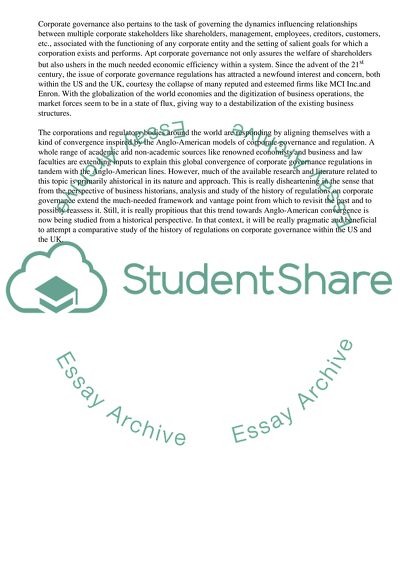Cite this document
(History of Regulations on Corporate Governance in the UK and the USA Thesis Proposal, n.d.)
History of Regulations on Corporate Governance in the UK and the USA Thesis Proposal. Retrieved from https://studentshare.org/management/1733045-the-history-of-regulations-on-corporate-governance-comparison-between-uk-and-usa
History of Regulations on Corporate Governance in the UK and the USA Thesis Proposal. Retrieved from https://studentshare.org/management/1733045-the-history-of-regulations-on-corporate-governance-comparison-between-uk-and-usa
(History of Regulations on Corporate Governance in the UK and the USA Thesis Proposal)
History of Regulations on Corporate Governance in the UK and the USA Thesis Proposal. https://studentshare.org/management/1733045-the-history-of-regulations-on-corporate-governance-comparison-between-uk-and-usa.
History of Regulations on Corporate Governance in the UK and the USA Thesis Proposal. https://studentshare.org/management/1733045-the-history-of-regulations-on-corporate-governance-comparison-between-uk-and-usa.
“History of Regulations on Corporate Governance in the UK and the USA Thesis Proposal”. https://studentshare.org/management/1733045-the-history-of-regulations-on-corporate-governance-comparison-between-uk-and-usa.


